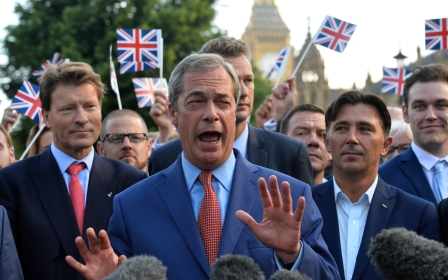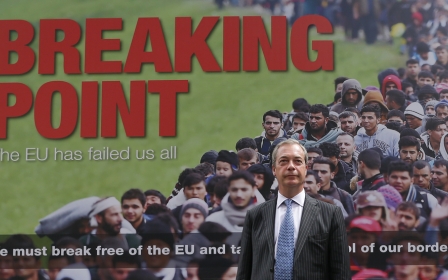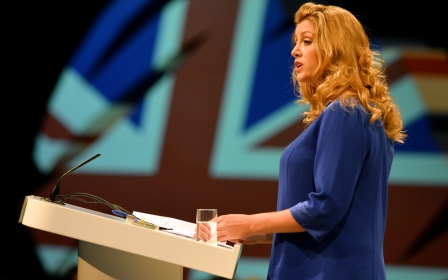Brexit Britain has no foreign policy

The United Kingdom has voted and barring extraordinary circumstances it will leave the European Union. The timing and terms of this will dominate British politics for much of the next decade. The UK is a divided realm at every level.
Politically the country is in limbo recovering from the flimflam of an ill-informed, divisive referendum campaign that one commentator described as voters being “deceived by the Pied Pipers of Brexit.” It has a weak caretaker government pending a replacement for Prime Minister David Cameron. The vote has effectively ripped up not just its mandate but shredded its foreign and economic policies.
The UK no longer has a clue as to what its position is in Europe let alone its role on the global stage. The thorny issue of immigration is not resolved and nor is there any evident incoming strategy. Outsiders can be forgiven for fearing a nastier, less friendly Britain ill at ease with a globalised world.
For the UK's foreign policy, this is dramatic with significant implications for the Middle East. This year marks the 100th anniversary of the Sykes-Picot agreement, when the UK was carving up the Middle East with France. The disastrous mandate eras, the Second World War and the Suez crisis put paid to the British empire, and by 1971 Britain withdrew from the Gulf and Aden. Since then, Britain’s Middle East policy (typically a series of contrary positions) was shaped firstly by its ties to its successor superpower in the Middle East, the United States, and secondly, particularly from the 1990s onwards, the European Union. British Middle East policy was therefore framed by relations with these two powers, and in the European case, largely with France and Germany.
Add into the mix the uncertainty across the Atlantic. A Clinton presidency may offer a degree of normalcy in Anglo-US relations but it will not just be Britain which would struggle with a President Trump. Who would want to be seen as Trump’s poodle in the Middle East given his anti-Muslim bigotry and his position to ban all Muslims entering the United States? (In a recent poll only 3.8 percent of Egyptians and 6 percent of Saudis backed Trump over Clinton). Britain may suspend its unofficial status as the 51st state. (Remember also that the favourite to replace Cameron, Boris Johnson said last December that "The only reason I wouldn't visit some parts of New York is the real risk of meeting Donald Trump.")
Britain is not about to fashion a new freelance, foreign policy quite yet. In years to come, unshackled by the EU collective position, it may develop a nimbler, more fleet-footed approach. For example, Britain like Norway might be able to open channels to Hamas and Hezbollah to probe possibilities for resolving conflict.
But for now, its relations with Europe will become a key domestic policy issue, and beyond that, it is tough to imagine Britain will have time or resources for any new global initiatives at all. Only the most reckless of prime ministers would embark for example on a new war in the Middle East with this uncertainty enshrouding his country. Then again, British politics has become disturbingly unpredictable.
Given then that a future prime minister and foreign secretary will be otherwise engaged, what can the Middle East expect?
Sense might suggest a business-as-usual approach with nothing too radical. Britain will be anxious to reassure long-term allies not least in the Gulf that firstly, they will not be abandoned but secondly that the UK should remain a destination of choice for them and their investments.
Assuming a Conservative government is in power, a more isolated Britain may be more pragmatist even than now, less predisposed to raise issues of human rights. It can no longer hide behind EU statements for this and needs friends not enemies. Worse, it may even try to exploit any unhappiness with the EU or US. Above all there will be an obsession with obtaining new trade deals to replace those lost by exiting the EU.
For the crisis countries of Syria, Iraq, Yemen and Libya, Britain may offer little. Their urgent priority is solutions and creative thinking to usher them out of their disastrous plight. Any potential peace deals will require external assistance, and nation-building expertise. A navel-gazing inward-looking British government is not going to do that.
Turkey will lose a country that has until this Brexit campaign when the prime minister backed off, championed its accession to the EU. Britain will now have zero influence on this. Israel will lose a key voice within the EU for its interests, one that often inserted US positions into the Israel-Palestine debate in Brussels. As for Iran, an incoming British government may take a different approach to the nuclear issue.
Given the likely make-up of a pro-Brexit government is hardly going to be refugee-friendly, there will be little change on this issue. The UK had already left the refugee crisis to be managed (poorly) by the rest of the EU and will continue to wash its hands of any responsibility.
But where Britain has played a positive role is as a major aid donor. This is under threat. One of the grievances of the far right in Britain is that, rather than invest in core services at home, too much funding went on international development. Incoming ministers may wish to shrink the £12 billion aid budget especially if the economy dips into recession. Britain has committed £1.1 billion to Syria but this generosity as the second largest bilateral donor may diminish.
Another consequence of Brexit for the Middle East will be Britain’s eventual absence from EU decision-making on the region. Britain has by far and away the most extensive diplomatic reach across the area, with deep historical ties. For sure, as the forthcoming Chilcot report into the 2003 Iraq will surely outline, British politicians have a very checkered record on the Middle East. But British diplomats are hugely respected across the EU. Frequently European diplomats tell me how much they value British input in Arab capitals.
What is so hard to determine and ultimately may matter most to the Middle East is just how influential Britain will be on the world stage, a stage that is fragmented and in the shadows. Much of this will depend on the leadership of future governments and the ability to shape a vibrant, outward-looking approach for a country that has just shown how inward looking it prefers to be.
- Chris Doyle is the director of Council for Arab-British Understanding. As the lead spokesperson for CAABU and as an expert on the region, he is a frequent commentator on TV and radio and gives numerous talks around the country on issues such as the Arab Spring, Libya, Syria, Palestine, Iraq, Islamophobia and the Arabs in Britain.
The views expressed in this article belong to the author and do not necessarily reflect the editorial policy of Middle East Eye.
Photo: Leave.EU supporters wave Union flags and cheer as the results come in at the Leave.EU referendum party at Millbank Tower in central London early in the morning of June 24, 2016 (AFP)
New MEE newsletter: Jerusalem Dispatch
Sign up to get the latest insights and analysis on Israel-Palestine, alongside Turkey Unpacked and other MEE newsletters
Middle East Eye delivers independent and unrivalled coverage and analysis of the Middle East, North Africa and beyond. To learn more about republishing this content and the associated fees, please fill out this form. More about MEE can be found here.





